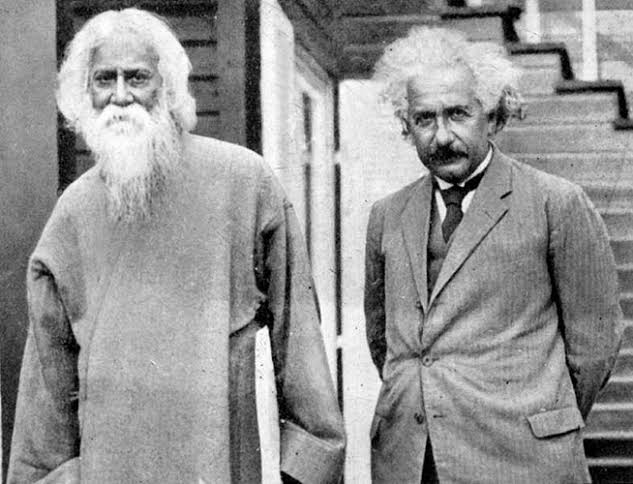Glimpses of notable creations by Rabindranath Tagore
New Delhi [India], May 7 (ANI): Today we are celebrating the birth anniversary of “the Bard of Bengal”, Rabindranath Tagore, who was a painter, patriot, poet, playwright, novelist, story-teller, philosopher, educationist and a great humanist. He was considered to be the most remarkable literary personality in India.
Born on May 7, 1861, he revolutionalised Bengali art, literature and music. He became the first Indian to win Nobel Prize in Literature in 1913.
Tagore took birth in a Brahmin family in Kolkata and started writing poems at the age of 8. He created his first collection of poems at the age of 16 using a pseudonym “Bhanusimha”. In 1877 he released his first book of stories and dramas under his own name.
His creations touched many aspects of life, nature, human relations, nationalism, politics and other socio-cultural ethos. He authored the national anthems of Indian and Bangladesh and created many other songs. The novels he wrote like Chaturange, Chokher Bali, Ghare Baire, Nastanirh, Jogajog, Shesher Kobita have been translated into many languages.
His beautiful writing can be seen in works like Gitanjali, Gora and Ghare-Baire, among others. Tagore promoted humanism and was against orthodox thinking. In 1930, Tagore met the great scientist Albert Einstein four times.

On his birth anniversary, let’s look at some of his remarkable creations.
1 Gitanjali
It is a collection of poetry, the most famous work by Tagore, published in 1910. Originally written in Bengali, the poems were based on medieval Indian devotional poetry with a common theme of love and also reflected the conflict between materialistic desire and spiritualism. It was translated into English in 1912 as ‘Gitanjali: Song of Offering’. It gained much popularity among European readers and the literary creation helped him in bagging the Nobel Prize in Literature in 1913.
2 Chokher Bali
Chokher Bali is a 1903 Bengali novel that can be translated variously as A Grain of Sand or Dust in the Eyes. It was Tagore’s first serious attempt at a novel. The story is a reflection of complicated relationships and extramarital affair. It shows how widows in society were isolated and deprived of many rights and their life used to be full of emptiness and hopelessness. It depicts the life of a young widow, Binodini, and extramarital affair with Mahendra.
The book also depicted the issues of female literacy, child marriage, patriarchy within the family and the fates of widows.
- Gora Published in 1910, Gora, is set in the Kolkata of 1880s during the British rule. It deals with different themes of friendship, motherhood, love, caste discrimination, woman-emancipation, nationalism, liberalism and religion. The story revolves around central character Gora, a staunch Hindu Brahmin. It shows how from being a follower of Brahmo Samaj, he turned into a practising Brahmin because he believes that following customs is necessary and brings him close to his land. The writer handled many aspects and political issues of the British era. Though Tagore was never actively involved in politics, he never detached himself from current events either.
- The Home and the World It is a 1916 novel which is all about Tagore’s inner conflict as the follower of western culture and his defiance against them. The story revolves around two main characters Nikhilesh, who is rational and opposes violence, and Sandip, the one who can do anything to achieve his goal. Set during the early years of Indian independence movement, the novel was translated into English by the author’s nephew, Surendranath Tagore. 5 Sonar Tori This is a collection of Bengali poetry which was published in 1894 and is considered to be one of the popular creations that he wrote during 1891 and 1901. Many poems in this collection were written during his stay at this place. The poet is in search of beauty and seems to be detaching himself from humanity. His other creations also include Kabuliwala, Fireflies, Stray Birds, The Post Office, The Gardener, Nationalism, The Broken Nest, Chitrangada, among others. Tagore’s works will always be embedded in our souls and keep reminding us of his ideals and notions.






